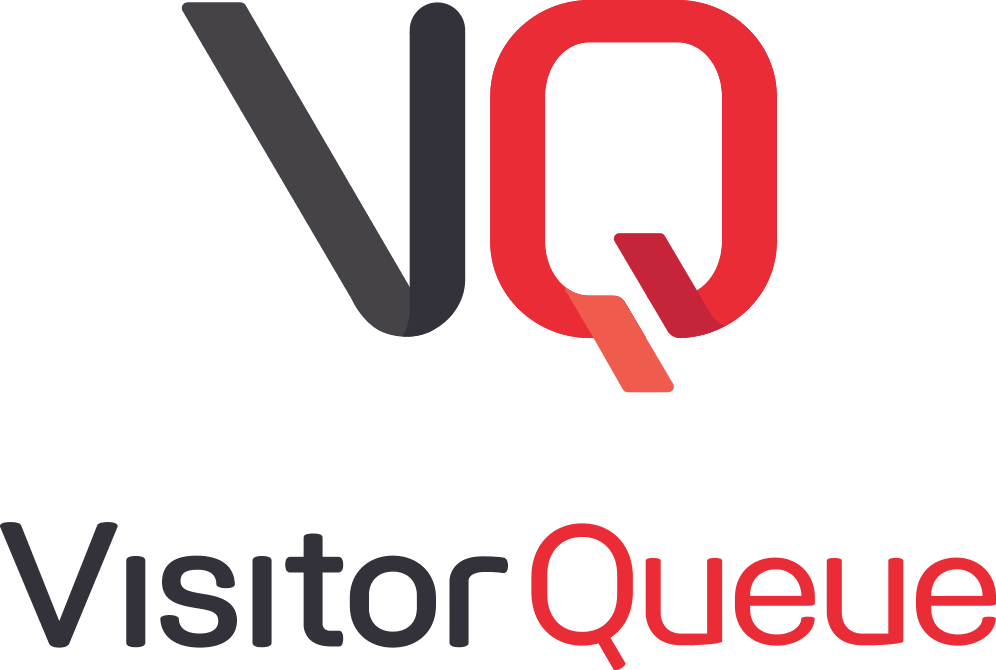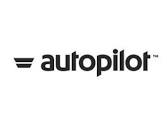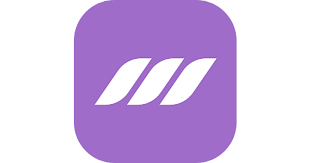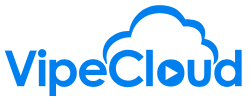What Is Lead Generation Software?
Lead generation software is a digital tool that enables organizations to locate and attract new consumers, collect their information, and nurture them into paying clients. It accomplishes this by automating tedious operations, offering intelligent lead insights, and optimizing the lead management process. One of the most important advantages of lead generating software is its capacity to acquire leads via numerous channels such as landing sites, forms, and social media.
These leads are then saved in a consolidated database, allowing organizations to better organize and track them. Another important feature of lead creation software is its lead scoring and segmentation capabilities. This tool enables organizations to rank and categorize leads based on their behavior, demographics, and actions, allowing them to better target their marketing efforts.Furthermore, lead generating software frequently includes email marketing and automation technologies, allowing organizations to interact with their leads by sending targeted and tailored messages.
This can help nurture leads and guide them along the sales funnel until they make a purchase. Some lead generation software also includes data analytics and reporting functions, which allow businesses to track the effectiveness of their lead generating efforts and make data-driven decisions to enhance their strategy. Overall, lead generating software is an essential tool for organizations that want to acquire and convert new clients. It saves time and resources while increasing lead management efficiency, allowing firms to focus on closing deals and meeting their sales targets.
What Are The Recent Trends In Lead Generation Software?
Lead generation software has become an indispensable tool for modern organizations seeking to expand their customer base and enhance sales. With the ever-changing digital marketing landscape, organizations must stay up to date on the latest developments in lead generation software.
Here are some of the recent trends to consider when selecting lead generation software for your business:
1. AI Integration: Artificial intelligence (AI) is increasingly being implemented into lead generating software, making it easier for firms to collect and analyze data. AI-powered software can automatically qualify prospects, tailor marketing messaging, and streamline lead management operations.
2. Account-Based Marketing (ABM): In recent years, ABM has grown in popularity, and lead generation software has followed suit. ABM enables firms to focus on specific accounts and develop individualized marketing tactics in order to enhance conversion rates. Look for software with ABM features to boost your lead generating efforts.
3. Mobile Optimization: As more individuals use mobile devices to access the internet, lead generation software must be mobile-optimized. This involves creating mobile-friendly landing pages, forms, and email templates to offer a consistent user experience across all devices.
4. Data Privacy Regulations: With the implementation of regulations such as GDPR and CCPA, organizations are now forced to follow strict data privacy guidelines. This has resulted in lead generating software becoming more visible and user-friendly, allowing for better control and transparency over how data is collected, kept, and used.
5. Integration With CRM Systems: Lead generating software is increasingly connected with customer relationship management (CRM) systems. This enables improved lead nurturing and tracking, as well as the ability to route qualified leads straight to sales teams for follow-up.
Benefits Of Using Lead Generation Software
Introduction: In today's extremely competitive industry, organizations rely substantially on quality leads to increase sales and revenue. However, lead creation may be a time-consuming and complex process that necessitates professional sales staff and effective marketing methods. This is where lead generation software comes in, offering a streamlined and effective way to collect and handle leads.
Benefits of Using Lead Generation Software:
1. Increased Efficiency: Lead generation software automates lead capture and management, saving firms important time and resources. It allows you to contact a broader pool of potential consumers more quickly and efficiently, freeing up your time for other important duties.
2. Better Targeting: Lead generating software enables you to segment your audience and target certain demographics, hobbies, and behaviors. This level of targeting helps you attract higher-quality leads who are more likely to become customers.
3. Improved Lead Tracking: Lead generating software delivers complete insights and analytics on each lead, including how they interact with your website, emails, and other marketing channels. This allows you to identify the most qualified prospects and prioritize them for follow-up, boosting the likelihood of conversion.
4. CRM Integration: Many lead generating software solutions interface with major customer relationship management (CRM) applications, making it easier to handle and nurture leads throughout the sales process. It improves communication and collaboration among sales and marketing teams, resulting in more successful lead conversion.
5. Cost-Effective: Lead generation software is a less expensive option than traditional lead creation methods like cold calling and print advertising. It reduces the need for manual processes, saving firms money on labor and lowering the risk of human error.
6. Personalization: Personalization is essential for successful lead generation, and lead generation software enables you to personalize your messaging and content to specific leads. This provides a more tailored and interesting experience for potential customers, boosting their chances of becoming paying clients.
7. Optimise Lead Nurturing: Lead generation software allows organizations to automate lead nurturing by sending personalized emails, targeted adverts, and other relevant content to leads at various stages of the sales process. It aids in keeping leads interested and moving them towards making a purchase.
Important Factors To Consider While Purchasing Lead Generation Software?
When it comes to acquiring lead generation software, you must consider several variables in order to make an informed purchase that matches your company's goals. With so many options available in the market, it might be difficult to choose the appropriate one.
However, by carefully examining these crucial elements, you can ensure that you buy in software that generates high-quality leads and, as a result, increases revenue.
1. Lead Generation Strategies: Before going into the world of lead generation software, it is critical to have a solid grasp of your lead creation objectives and strategy. Do you want to focus on lead generation via content marketing, email marketing, social media, or all of the above? Different software provides a variety of features and functionalities to support different lead generation tactics. Thus, deciding on a method ahead of time can help you narrow down your possibilities.
2. Target Audience: Whether you are a B2B or B2C organization, knowing your target audience is critical when choosing the correct lead generation software. Some software specialized in B2B lead generation, while others are better suited to B2C. To ensure optimal efficacy, use software that is tailored to your target audience.
3. Characteristics And Integration: When considering lead generation software, look for characteristics that meet your requirements. Some important aspects to consider include lead collection forms, email marketing automation, lead nurturing, analytics, and lead scoring. Furthermore, ensure that the software connects seamlessly with your existing tools, such as customer relationship management (CRM) software, in order to expedite your lead creation processes.
4. User-Friendliness: Another important consideration is the software's usability, especially if you don't have a specialized marketing team or technical expertise. A user-friendly design with simple navigation can save time while making the lead generation process more seamless and efficient.
5. Customer Service: When purchasing any product, it is critical to ensure that the vendor provides dependable and accessible customer service. In the event of any technical issues or questions, a timely and competent support team can assist you in quickly resolving problems, reducing delays to lead generating efforts.
6. Price And Scalability: Finally, think about the pricing and scalability of the program. Look for a pricing structure that meets your budget while still providing room for expansion as your organization grows. Consider the software's scalability to meet your expanding lead generating requirements without causing substantial interruption or additional costs.
What Are The Key Features To Look For In Lead Generation Software?
When looking for the best lead generation software, you should evaluate the important characteristics that will fulfill your individual business requirements. To make an informed decision, a buyer must first comprehend these aspects.
Here are the most important characteristics to look for in lead generation software:
1. Lead Database Management: Efficient lead generation software should include a strong lead database management system that helps you to store and organize leads efficiently. Look for a system that has tools like lead scoring, segmentation, and lead nurturing to help you handle your leads easily.
2. Campaign Management: The program should include tools that allow you to develop and manage targeted lead generation campaigns. This features configurable templates, A/B testing, and statistics to monitor the effectiveness of your campaigns. This will allow you to adjust your techniques and improve your lead generation results.
3. Integration: Look for software that works seamlessly with your current CRM, marketing tools, and other critical platforms. This will streamline your lead creation operations while also increasing the overall efficiency of your sales and marketing staff.
4. Email Automation: Email marketing is an important part of lead creation, and your software should include sophisticated email automation features. This includes tools like tailored emails, automated follow-ups, and autoresponders, which ensure that your leads receive timely and appropriate information.
5. User-Friendly Interface: The software's interface should be simple to use, especially for non-technical users. This will help to increase the adoption rate among your company and ensure that everyone can utilize the product efficiently.
6. Analytics And Reporting: Data is critical in the lead generation process, thus your software should include complete analytics and reporting capabilities. This will allow you to track your progress, discover areas for development, and make data-driven decisions to maximize your lead generating efforts.
7. Lead Tracking And Monitoring: The software should include tools that allow you to track and monitor your leads throughout the sales funnel. This includes lead source tracking, lead activity tracking, and real-time lead notifications, so you can remain on top of your leads and take the necessary activities to convert them into customers. By taking these essential qualities into account, you will be able to identify the best lead generating software for your business and help you create high-quality leads more efficiently. Don't forget to study reviews, attend demo sessions, and evaluate various possibilities before making your final decision.
Why Do Businesses Need Lead Generation Software?
In today's extremely competitive industry, businesses require a consistent and effective method of generating leads that can eventually convert into paying clients. This is where lead generating software comes into play as a valuable tool for organizations of all sizes. First and foremost, lead generation software automates the process of identifying and nurturing leads. This saves firms time and resources while also expanding their pool of potential clients.
Lead generation software uses powerful algorithms to identify and target prospects who are most likely to convert, saving organizations the time and effort of manually weeding through a large number of leads. Furthermore, lead generating software provides a variety of tools and features that can help businesses improve the success of their lead creation activities.
These technologies may include landing page builders, contact forms, email marketing integrations, and CRM systems, among others. Businesses can use these technologies to streamline their lead generating process and increase overall lead conversion rates. Another important feature of lead creation software is the capacity to deliver useful insights and analytics. Businesses can use real-time data to track the success of their lead generation initiatives and make adjustments to improve results.
This data is also useful in finding the most effective marketing channels and techniques, allowing organizations to better manage their resources. Lead generation software is important not only for automating lead production, boosting lead quality, and delivering valuable insights, but it also helps to nurture leads. Businesses can create strong relationships with potential customers and steer them toward a purchase decision by utilizing various lead nurturing strategies such as tailored emails, targeted content, and automatic follow-ups.
How Much Time Is Required To Implement Lead Generation Software?
The timing for adopting lead generation software may vary based on a number of factors, including the software's complexity, the size of your firm, and the level of customization required. However, properly implementing lead generation software often takes between a few weeks and a few months. The first step in adopting lead generation software is to install and integrate it with your existing systems.
This can take anywhere from a few days to a few weeks, depending on the program and how well it works with your existing tools. The next step is to identify your lead generating goals and develop a plan for using the program. This phase can take a few weeks because it entails researching industry best practices, analyzing your target audience, and fine-tuning your lead generation strategy. Once the groundwork is completed, the software implementation can begin.
This could include establishing landing pages, putting up lead forms, and automating lead nurturing campaigns. The amount of time needed for this phase is determined by the complexity of your lead generation process and the level of customization necessary. After implementation, it is critical to test and optimize the software to verify that it is operating at its full potential.
This step can take many weeks because it entails obtaining data, analyzing results, and making required changes. Overall, the setup of lead generation software can take between 4 and 12 weeks. It is worth noting that larger firms or those with more intricate lead generation processes may require a longer time frame. It is also advised that a specialized team or individual oversee the implementation process to guarantee a seamless and efficient transition.
What Is The Level Of Customization Available In Lead Generation Software?
Lead generation software includes a variety of customization possibilities to meet the particular demands of different organizations. These options allow you to customize the program to fit your industry, target demographic, and preferred lead generation method.
Let's take a closer look at the customization options in lead generation software.
1. Customizable Data Fields: Collecting and organizing prospect data is an important element of lead creation. Lead generating software allows you to modify data fields to capture information that is important to your organization. This could include contact information, firm size, industry, and more. This level of personalization ensures that you just capture the relevant information and make the data more useful to your sales and marketing staff.
2. Lead Scoring Customization: Lead scoring is a key element of lead generation software that allows you to prioritize and target the most qualified leads. The level of customization available in lead scoring enables you to apply point values to various activities and behaviors of your leads. This may include website visits, email openings, and form submissions. Customizing your lead scoring system allows you to focus your efforts on the leads that are most likely to convert, saving time and resources.
3. Landing Page Customization: Most lead generating software has built-in landing page builders or integrates with third-party landing page solutions. These landing page builders let you personalize the appearance, layout, and content of your landing pages. This level of personalization allows you to develop landing pages that are unique to your business and target your specific demographic.
4. Email Template Customization: Email marketing is an important aspect of lead generation, and lead generation software provides a variety of customization possibilities for your email designs. This includes the option to insert custom fields, logos, and branding components into your emails. Furthermore, you may tailor your email content to the prospect's data and behavior, making your emails more relevant and engaging.
5. Lead Nurturing Customization: Lead nurturing is essential for converting leads into clients. Lead generating software enables you to personalize lead nurturing workflows and sequences based on your business objectives and target audience. You may also categorize your leads depending on their hobbies, activities, and demographics, tailoring your lead nurturing efforts accordingly.
Which Industries Can Benefit The Most From Lead Generation Software?
Lead generating software has transformed organizations of all kinds, enabling them to produce qualified leads and increase revenue. However, no two industries are alike, and each has unique lead generation requirements. So, which sectors would gain the most from lead generation software?
Let us find out.
1. Business-To-Business (B2B) Companies: Lead generation software is an invaluable resource for B2B enterprises who offer their products or services to other businesses. This program assists B2B enterprises in identifying and reaching out to potential customers, pitching their products, and closing agreements. By automating the lead generation process, B2B organizations may save time and money, improve targeting, and eventually increase profits.
2. Real Estate: The real estate industry relies significantly on lead generation to discover prospective buyers and sellers. Lead generation software enables real estate agents and organizations to acquire leads from a variety of sources, including websites, landing pages, and social media. The program also has capabilities for nurturing leads, tracking their activity, and streamlining the follow-up process. This is especially useful in a highly competitive industry like real estate, where prompt follow-up may make or break a contract.
3. E-commerce: To increase sales, e-commerce enterprises require a steady stream of qualified leads. Lead generation software enables companies to gather and engage leads via a variety of channels, including email, social media, and sponsored marketing. It also provides useful insights into client behavior, helping e-commerce companies to better identify their target audience and customize marketing activities accordingly.
4. Healthcare: The healthcare business has reaped major benefits from lead generation tools. With the advent of online consultations and telemedicine, healthcare professionals can employ lead generation tools to attract and convert patients. This software can also aid in patient retention and loyalty through targeted email marketing, tailored messaging, and automatic appointment reminders.
5. Education: Lead generation is critical for educational institutions, including schools, colleges, and universities. Lead generating software can help these universities attract and enroll domestic and foreign students. They can use the software's features to segment leads based on their interests and demographics, deliver personalized communications, and automate the registration and admissions process.
6. Professional Services: Accounting, legal, and consulting organizations can all profit significantly from lead generation tools. These businesses frequently rely on referrals and word-of-mouth for leads, but using lead generation tools can help them reach a larger audience and acquire new clients. Professional services can boost conversion rates and deliver better customer care by leveraging the software's effective lead tracking and management.
Conclusion
Conclusion: In today's fast changing digital landscape, lead creation has become an essential component of any business' success. To remain competitive, businesses must invest in lead generating software that effectively identifies and converts potential consumers. Following extensive research and analysis, we have found the best lead generation software alternatives on the market. Each has its own set of features and functionalities designed to meet the demands of various businesses.
Before making a decision, carefully consider your objectives, budget, and team capabilities. When selecting lead generation software, consider lead management, lead scoring, integrations, reporting, and customer support. Remember that the correct software will not only help you produce leads, but also nurture them into loyal clients.
We hope you found this buyer's guide useful in making an informed selection about lead generation software. To maximize ROI, buy software that is aligned with your business goals and objectives. With the appropriate lead generation software, you can streamline your sales process, save time and money, and eventually grow your organization. Begin your lead generation journey today!






















